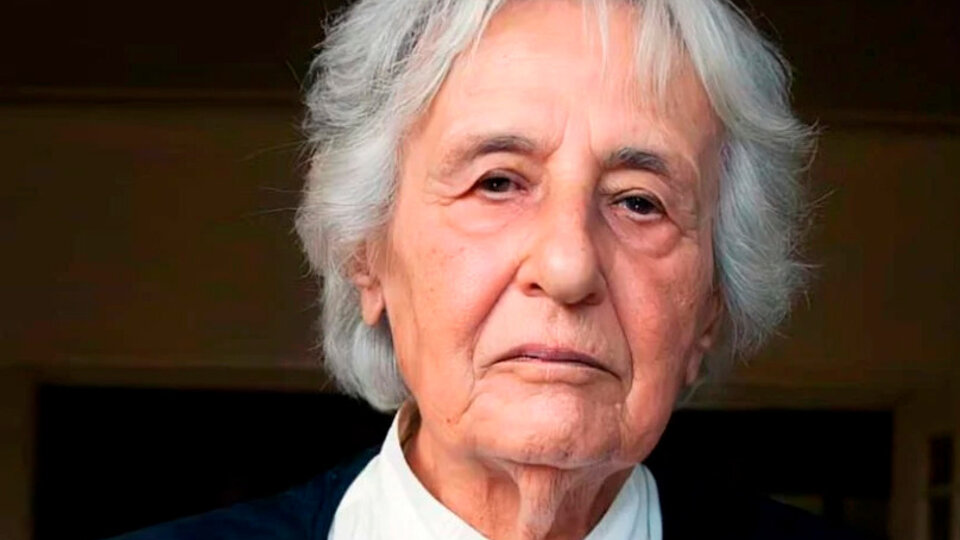
[ad_1]
Irmgard Furchner is 96 years old and lives in a retirement home in northern Germany. Young woman, she worked as a secretary, with one particularity: typed orders for execution and deportation to a Nazi concentration camp, Poland. She is accused of complicity in crimes against humanity committed there and therefore He had to make a statement to German justice. However, yesterday morning she left the house, took a taxi to a metro station and since then nothing is known about her.
“The accused fled”, announced the official in the court of Itzehoe, where she was going to be tried. “He left his home this morning, took a taxi,” he added to those in the room, dumbfounded. Among them was the accused’s lawyer, Wolf Molkentin, in silence.
They waited for her 20 minutes, the president of the court asked for “a little patience”, until they realized that it would be in vain and decided to issue an arrest warrant.
The surprising event occurred in the Provincial Court of Itzehoe, in northern Germany, where the trial against the accused woman is to begin of complicity in 10,000 of the 65,000 murders that took place in the Stutthof concentration camp, near the city of Gdansk, where years later Lech Walesa made history with the Solidarity trade union.
At one point, there were doubts about the relevance of the trial and the possibilities that Furchner could participate in it. But after a long procedure, Justice ruled in February that she was fit to appear despite her advanced age, although visits by judicial authorities to the retirement home should be limited to a few hours per day.
What Irmgard Furchner did
Furchner’s face was relatively known to be one of the oldest people to ever be judged by the crimes against humanity of nazism, now occupies the front page of international newspapers for circumvention of justice.
Fuchner worked at Stutthof between June 1943 and April 1945 as typist and secretary to the camp commander, Paul Werner Hoppe, the Nazi criminal responsible for the murder of “Jewish prisoners, Polish partisans and Soviet Russian prisoners of war”, according to the prosecution.
At the time of participating in the crimes with which he was charged, the accused he was between 18 and 19 years old and had already declared twice as a witness, in 1954 and 1962, on his role in this killing center.
The first time around, he said that all correspondence with SS headquarters went through his hands and that Werner Hoppe dictated daily writings and radio messages to him. However, swore he had never been aware of the murderous machinery of which tens of thousands of people were victims.
Lawyer Christoph Rückel, who has represented Holocaust survivors for years, said “she handled all of the camp commander’s correspondence.” “He also typed the execution and expulsion orders and put his initials”he assured the local press.
A lawsuit against humanity that should have been symbolic
This trial was to precede that of a centenary guardian of the Nazi concentration camp of Sachsenhausen, near Berlin. In his case, it should be the first woman involved in Nazism to stand trial in decades in the country.
The trial against Furchner also raised expectations as it was due to take place on the eve of the 75th anniversary of the death sentences of 12 of the main leaders of the Third Reich at the Nuremberg trials.
The escape scandal is not minor and is not limited to this day. In recent decades, Germany has been blamed for not having given impetus to the search for war criminals. These elderly former Nazis have never been tried.
Seventy-six years after the end of World War II, justice continues to search for surviving ex-Nazi criminals. Different prosecutors are currently examining eight cases involving, in particular, former employees of the Buchenwald and Ravensbrück camps, the Central Office for the Clarification of National Socialist Crimes told AFP.
In recent years, several processes had to be abandoned due to the death of the suspects or your physical inability to appear in court.
But although Germany has convicted four former guards or employees of the Nazi camps of Sobibor, Auschwitz and Stutthof over the past ten years, it has tried very few women involved in the Nazi machine.
Justice has analyzed the cases of at least three field agents Nazis. About 4,000 women worked as guards in the concentration campsAccording to historians, few were tried after the war.
.
[ad_2]
Source link
 Naaju Breaking News, Live Updates, Latest Headlines, Viral News, Top Stories, Trending Topics, Videos
Naaju Breaking News, Live Updates, Latest Headlines, Viral News, Top Stories, Trending Topics, Videos